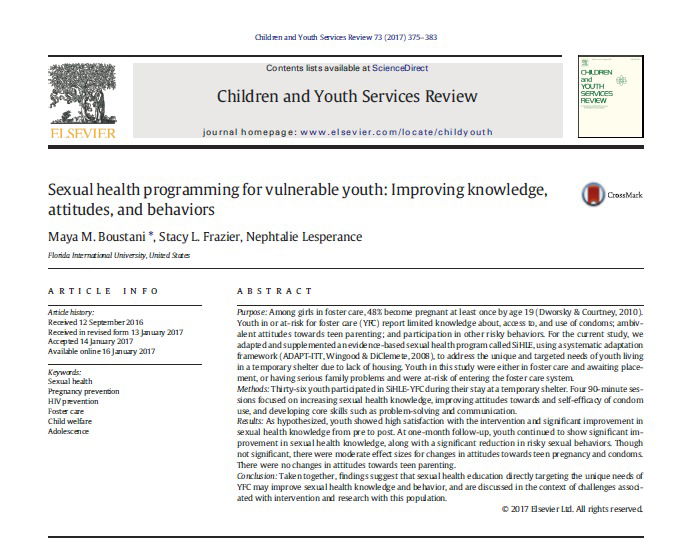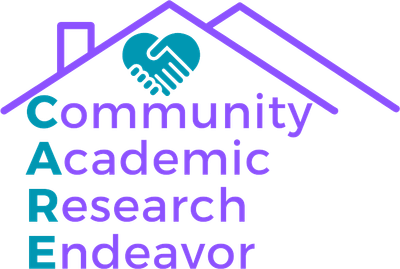Sexual health prevention programming for youth in or at-risk for foster care: Improving knowledge, attitudes, and behaviors.

Purpose: Among girls in foster care, 48% become pregnant at least once by age 19 (Dworsky & Courtney, 2010). Youth in or at-risk for foster care (YFC) report limited knowledge about, access to, and use of condoms; ambivalent attitudes towards teen parenting; and participation in other risky behaviors. For the current study, we adapted and supplemented an evidence-based sexual health program called SiHLE, using a systematic adaptation framework (ADAPT-ITT, Wingood & DiClemete, 2008), to address the unique and targeted needs of youth living in a temporary shelter due to lack of housing. Youth in this study were either in foster care and awaiting placement, or having serious family problems and were at-risk of entering the foster care system. Methods: Thirty-six youth participated in SiHLE-YFC during their stay at a temporary shelter. Four 90-minute sessions focused on increasing sexual health knowledge, improving attitudes towards and self-efficacy of condom use, and developing core skills such as problem-solving and communication. Results: As hypothesized, youth showed high satisfaction with the intervention and significant improvement in sexual health knowledge from pre to post. At one-month follow-up, youth continued to show significant improvement in sexual health knowledge, along with a significant reduction in risky sexual behaviors. Though not significant, there were moderate effect sizes for changes in attitudes towards teen pregnancy and condoms. There were no changes in attitudes towards teen parenting. Conclusion: Taken together, findings suggest that sexual health education directly targeting the unique needs of YFC may improve sexual health knowledge and behavior, and are discussed in the context of challenges associated with intervention and research with this population.
Full text available here: Boustani et al (2017) Sexual health programming for vulnerable youth



